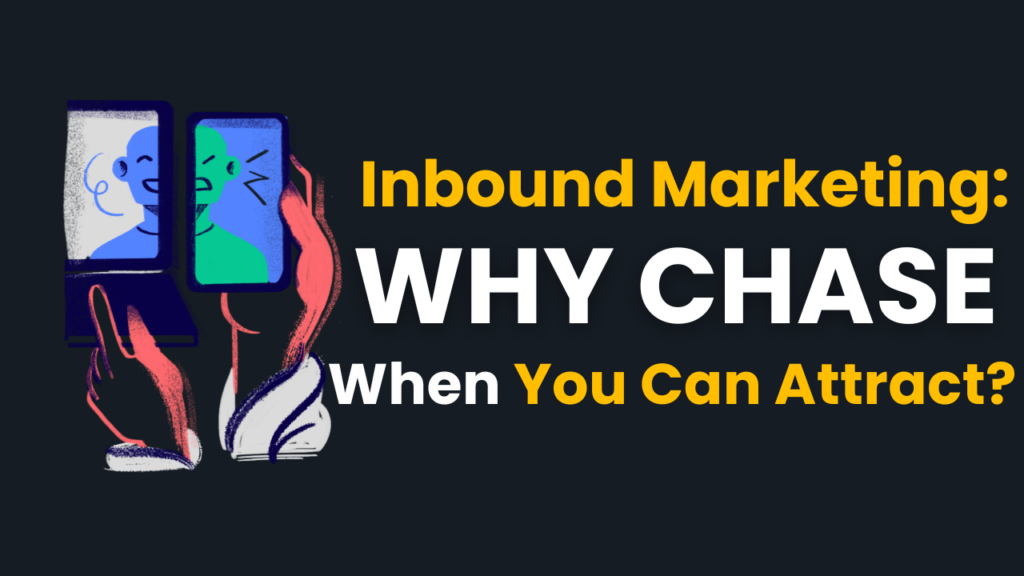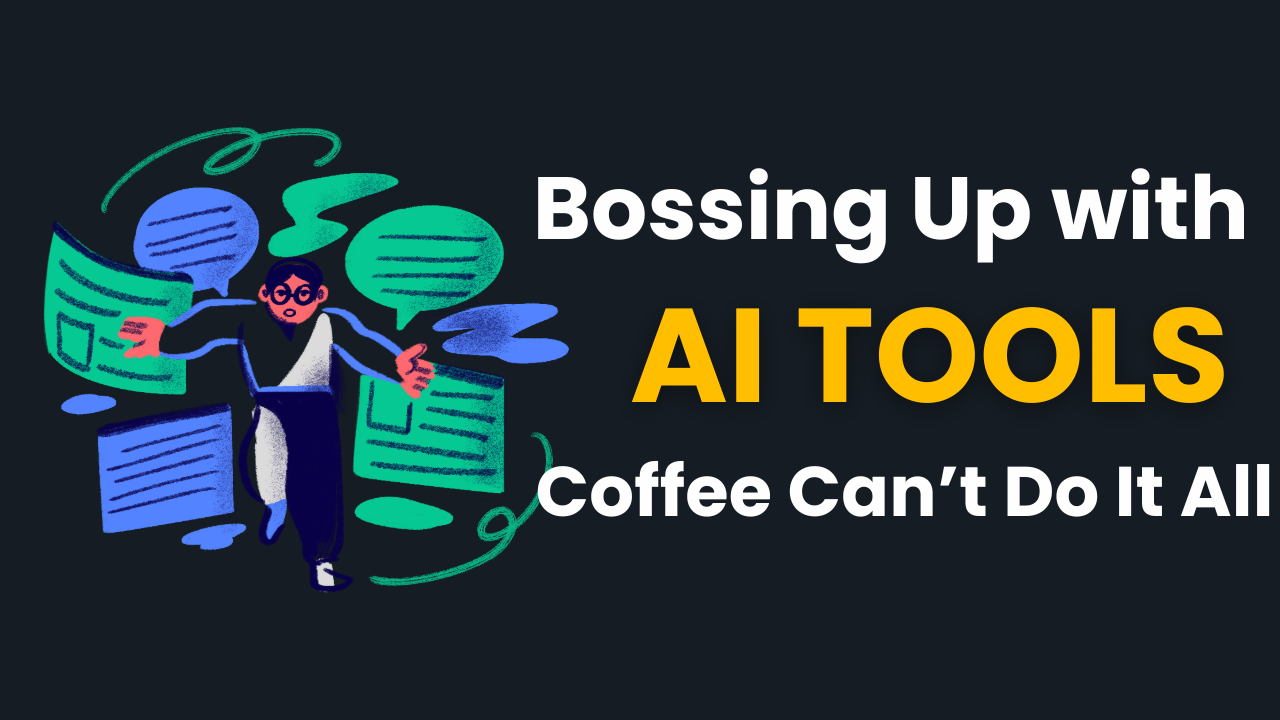
| Getting your Trinity Audio player ready... |
Since its launch in 2022, ChatGPT has formed the reason for everyone to start exploring and keep finding business purposes. But from that time onwards, the further it goes, additional AI tools are developed, while so are the restrictions. So the real question is, in 2024, AI tools—friend or foe? Our team believes that the smart use of AI will only make your life easier and work processes faster. But how to improve my small business with AI tools?
In this article, we want to share with you some of the best AI tools that you can use for your business. Whether a startup founder or an established business owner, selecting the best AI tools for small businesses becomes paramount to any form of success in the year 2024. With many options available, the right AI platform will save time, cut costs, and boost productivity.
Scroll down to see what we prepared for you.
Why AI Tools Are Crucial for Business
AI tools for business are, therefore, a game-changer for companies of all scales, especially the smaller-scale ones. But why is AI so important?
First things first – efficiency and automation. AI tools may be able to take up repetitive tasks and get business owners and employees off their backs so that the former can focus on more critical aspects of the business. In other words, this is basically what every employee or business owner ever wanted: tedious work out the window. It’s either done through automated customer service using AI chatbots, smoothing out marketing campaigns, or just putting internal operations in order; artificial intelligence for small businesses boosts productivity.
Cost-effectiveness comes next.
Small businesses usually survive on shoestring budgets. AI for small businesses offers solutions to cut overhead by eliminating the need for large teams to manage such repetitive tasks as data entry, social media management, and basic inquiries from customers. Especially, it can be useful for startups.
We cannot skip enhanced decision-making. It is not an optional activity that one could afford to skip. It is about making the right decisions with AI-driven analytics and insights for businesses. AI tools for small businesses empower decision-makers with all they need to succeed. Be it optimizing your marketing strategy or predicting customer behavior-you can count on these tools.
Last but not least, it is a personalized customer experience. AI marketing for small businesses helps in crafting hyper-personalized experiences for customers. AI analyzes user behavior and recommends products or services, thus improving engagement and conversion rates.
We are coming to the point where adopting AI solutions for small business is not an option anymore. But it is important to stay abreast of the market and not lose to your competitors.
How to Choose the Most Effective AI Tools for Your Business
With so many options today, it can be a little overwhelming to try and determine which artificial intelligence tool is proper for your business. It’s time to narrow down the options:
- First of all, identify your needs. Do you need an artificial intelligence tool for automating marketing, managing customer service, or smoothing out operations? You have to know what exactly your business requires. Define your pain points and goals before choosing an AI tool for your business.
- Consider whether the AI tool will be able to scale with your business. AI applications for small businesses should be adaptable, allowing you to start small and expand as your business needs evolve.
- The best AI business tools should be integrated with your systems. Whether it’s CRM, CMS, email marketing instruments, or a project management platform, compatibility is the most important thing. So check it in advance.
- Now, determine a budget and find options that give more value to your penny spent without denting your wallet. AI platforms for business are cost-effective, although a significant variance in model pricing exists. We’re sure you’ll be able to find the right one to suit all of your parameters.
- Not everyone is a digital wizard, and you shouldn’t have to be one to use AI. Look for user-friendly tools, through which massive technical expertise isn’t required in order to implement and manage it.
- Even the most intuitive AI software requires some degree of training and support. Be sure the AI provider offers reliable customer service and resources to get the most out of your investment.
So now we know what factors we should consider when choosing AI software for small business. What about the names, you’ll say? Let’s move to our list.
Top AI Tools for Different Business Areas
The following are some of the best AI tools for business in 2024, specifically curated to cover different business functions. We’ll provide everything you need, including pros, cons, and pricing, of course.
1. Jasper AI
image: Jasper AI Youtube
This AI content generator primarily finds its application in writing marketing content. It helps its users create blog posts, product descriptions, ad copy, and social media posts with much ease and efficiency. Equipped with suggestions for content at their fingertips, Jasper saves precious time and unleashes creativity in businesses of all sizes.
From our experience with the team, we would highly not recommend using just AI tools for content creation. Always place bets on human-written content, and use AI tools wisely. Do you need it?
Pros:
- Excellent for generating high-quality content and marketing copy.
- Supports multiple languages.
- Saves time by automating repetitive writing tasks.
Cons:
- Limited accuracy with highly technical subjects.
- Requires a learning curve to optimize prompts.
Price: Starts at $49/month for the basic plan.
2.Grammarly

image: Google
We have already told you about this tool in one of our posts, but we couldn’t resist mentioning it here either. If you’d like to know more about the best Chrome extensions, check it out. Grammarly is a writing assistant that makes suggestions to users on how to improve their writing in grammar, spelling, punctuation, and style. It also allows for more sophisticated suggestions regarding tone, clarity, and conciseness. This is an important tool that will enable any business to create professional, error-free content. Our team uses it a lot, and we always enjoyed it.
Pros:
- Excellent grammar and punctuation correction.
- A plagiarism detection feature.
- Easy to use with browser extensions and integrations.
Cons:
- The free version has limited Copy-AI functionality.
- AI suggestions may not always match the intended tone.
Price: Free version available; premium starts at $12/month.
3. Copy.ai
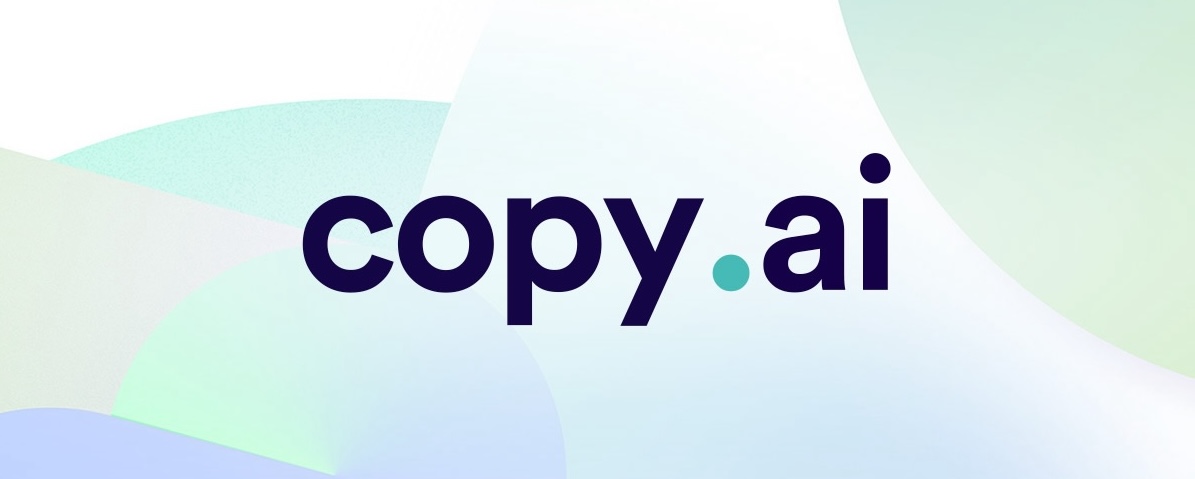
image: Google
It is the AI content generator tool that assists businesses in creating marketing-based content such as emails, social media posts, and blog articles with its training in providing highly engaging content in the minimum time. Thus, becoming very helpful for small businesses, startups, and freelancers. Don’t skip it, but also use it wisely. From our experience with the team, we would highly not recommend using just AI tools for content creation. Always place bets on human-written content.
Pros:
- Speedy and easy usage in creating marketing content.
- A number of templates for ads, blogs, and social media.
- Economically viable for small-scale businesses and freelancers.
Cons:
- Quality may drop in complex content.
- Occasional repetition in the generated text.
Price: Free plan available; pro plan starts at $36/month.
4. HubSpot AI

image: Google
Every marketer should know it, but if not, then Hubspot embeds artificial intelligence into its CRM and marketing hub. The tool automates email marketing tasks, tracking leads, and personalization of content. HubSpot AI uses machine learning to identify data analysis and optimization for marketing and sales strategies for small and medium businesses. Sounds like a must-have tool for your business, isn’t it?
Pros:
- Central place for AI-powered CRM, marketing, and customer service.
- Automates emails, lead management, and campaign tracking.
- Strong analytics and reporting features.
Cons:
- Expensive for small businesses.
- Complex to set up and navigate.
Price: Free CRM; paid plans start at $50/month.
5.Hootsuite Insights

image: Google
It’s an AI social media management tool to enables the enterprise to effectively keep track of social media trends, schedule posts, and interact with the audience. Such analytics bring in information on what content provides maximum engagement so businesses can fine-tune their social media strategy. It’s impossible to keep everything organized when it comes to social media, all ideas, information, etc. But Hootsuite can become your helper.
Pros:
- Automates social media management and post-scheduling.
- AI-powered analytics help optimize content strategy.
- Supports multiple platforms.
Cons:
- Limited reporting features in lower-tier plans.
- Can be overwhelming for beginners.
Price: Plans start at $99/month.
6. Tableau
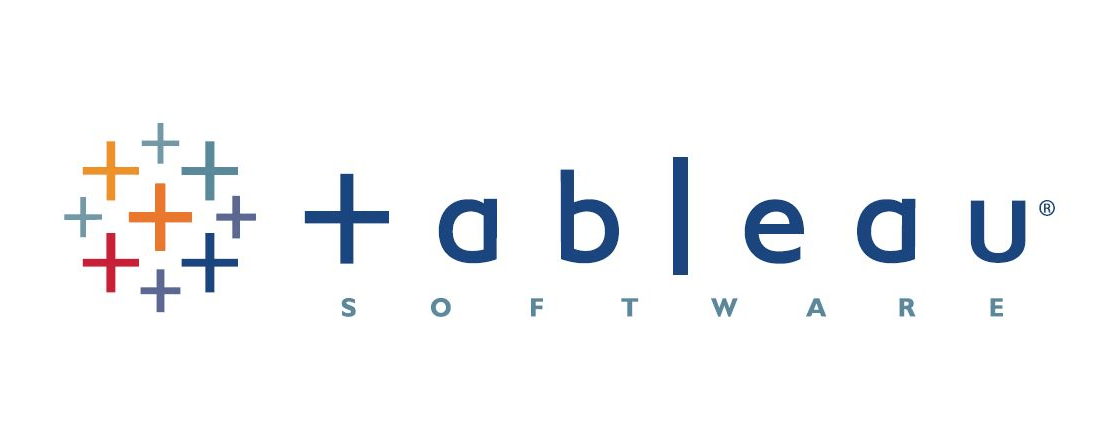
image: Google
Rubric: “data analysts essentials”. It is among the leading data visualization tools driven by AI in deriving insight from business data. Tableau visualizes data through the conversion of raw data into an interactive dashboard and reports that make the decision-makers jobs simpler as they try to locate trends and patterns. Tableau will provide insights that will help drive the business to make decisions faster. It is perfect for translating tons of complex data into actionable insights.
Pros:
- Best for data visualization and analysis.
- Intuitive interface for creating interactive dashboards.
- Powerful integrations with data sources.
Cons:
- Requires a significant learning curve.
- Expensive for micro businesses.
Price: $70/user/month.
7. Zoho Zia
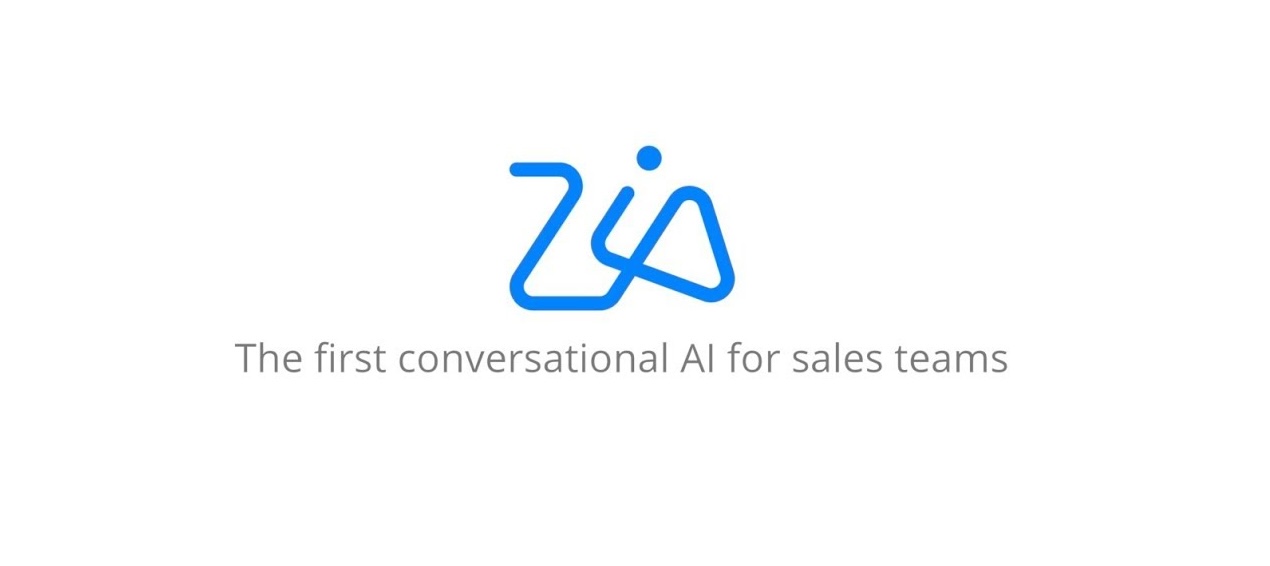
image: Google
One more AI-powered business assistant integrated into Zoho’s CRM. Zia helps the business with lead scoring, sales forecasting, email management, and data insights. It analyzes the customer data to provide recommendations based on driving home points and making quick decisions. If your business uses CRM, and it’s Zoho, this assistant will ease the processes.
Pros:
- An AI assistant that provides intelligent sales forecasting and data insights.
- Integrates with Zoho CRM for seamless management.
- Good for small and medium-sized businesses.
Cons:
- Advanced features are only available in higher tiers.
- Some AI predictions may lack accuracy.
Price: Starts at $20/user/month.
8. Salesforce Einstein
image: Google
Now an important tool for Salesforce users. If you haven’t used it before, then let us remind you that it’s an AI layer that has become a part of the Salesforce CRM platform. It uses machine learning to study data and make predictions. Einstein can personalize customer interactions, predict sales outcomes, and offer recommendations—all functions making it quite a powerful tool in customer relationship management. Would you like to try it?
Pros:
- AI-driven insights for CRM with predictive analytics.
- Personalizes customer experiences and improves sales processes.
- Deep integration with the Salesforce ecosystem.
Cons:
- High cost, especially for small businesses.
- Requires skilled staff to manage and implement.
Price: From $25/user/month, advanced AI features may be included in higher-tier plans.
9. Drift
image: Linkedin
This tool will ease the pain for many e-commerce business owners. It’s a conversational AI platform that deploys chatbots to engage website visitors in real-time. This can qualify leads, answer questions, and help in closing sales. It supports businesses with automating their customer service and sales cycles while enhancing customer engagement. Need one for your website?
Pros:
- AI live chatbot for customer engagement and lead generation.
- It boosts website conversion rates with personalized messaging.
- Integrates with CRM and marketing automation tools.
Cons:
- Customization options can be complex to set up.
- High pricing for smaller businesses.
Price: Custom pricing, but starts around $400/month for small businesses.
10. Surfer SEO
image: Google
Sure, it is excellent to create great content, but even more interesting is when that same content basks in top positions in search engines, right? This is a content optimization tool that will help businesses rank their websites on search engines. It analyzes top-ranking pages and provides recommendations for keywords, content structure, and readability. Surfer SEO is ideal for content creators aiming to optimize their material for search engines.
Pros:
- AI SEO tool for optimizing content based on data-driven strategies.
- Provides content score, keyword suggestions, and SERP analysis.
- Excellent for content creators aiming for higher rankings.
Cons:
- Requires an understanding of SEO practices to maximize effectiveness.
- Pricey for small businesses or freelancers.
Price: Plans start at $59/month.
11. Lumen5
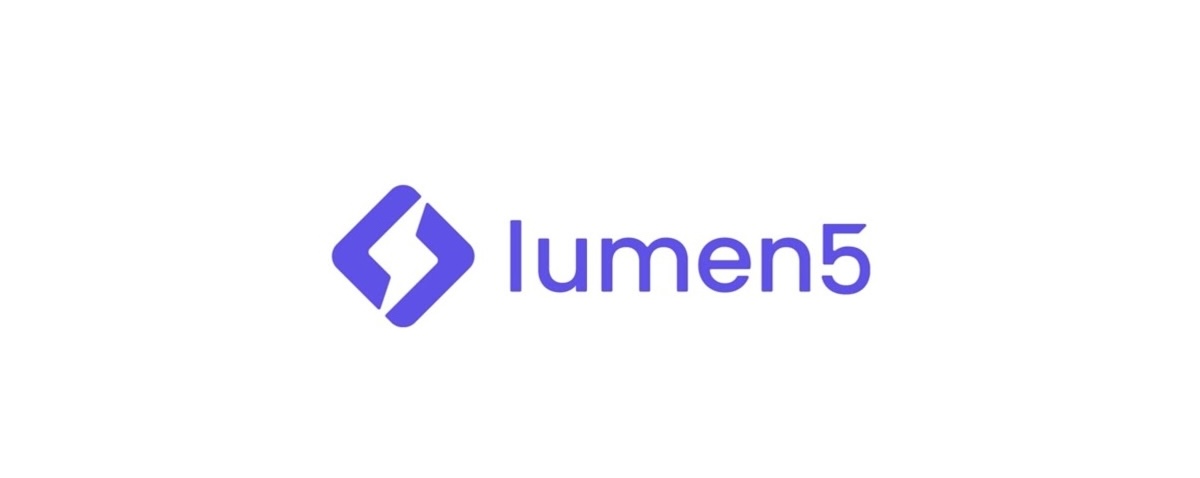
image: Google
It’s a video creation platform that helps businesses make awesome videos for marketing and social media. Using AI, it converts text-based content into video format; for that, it offers hundreds of customizable templates. Lumen5 is popular among small businesses for creating affordable video content. It’s interesting to try new ways of creating content, you can start with this one.
Pros:
- AI video creation platform to make engaging marketing content.
- An intuitive drag-and-drop interface, no design skills are required.
- Wide range of templates for social media videos.
Cons:
- Limited customization options in lower-tier plans.
- Video quality may not meet professional standards for large productions.
Price: Free plan available; paid plans start at $29/month.
12. X.AI
image: Google
It’s a scheduling assistant that allows businesses to automate their setup for meetings. It integrates with major calendar systems and manages the back and forth communications necessary for setting up an appointment. X.AI saves time for small businesses by simplifying scheduling tasks. Especially for outsourcing teams, helps keep all calls organized.
Pros:
- AI scheduling assistant that automates the process of setting meetings.
- Integrates with Google and Outlook calendars.
- Avoids infinite emailing back and forth.
Cons:
- Limited features in the free version.
- Can struggle with complex scheduling scenarios.
Price: Free plan available; pro plan starts at $8/month.
These are the tools that can help your business reach new heights.
How to Integrate AI Tools into Your Business
Does integrating AI tools into your business sound intimidating to you?
We can share a few steps to make the process straightforward with a few key steps:
- Assess Your Current Operations: Before implementing it, review your current processes and identify areas that can benefit the most from automation or data insights.
- Start Small: Choose one or two areas to implement AI tools and test their effectiveness. For example, you could start with customer service chatbots or AI-driven email marketing tools before scaling.
- Train Your Team: Even the best AI tools require a learning curve. Make sure your team is trained on how to use the tools effectively and has access to support.
- Monitor and Adjust: AI tools should evolve with your business. Regularly review the performance of your AI systems and adjust them as needed to ensure they are meeting your goals.
Examples of Successful AI Tool Implementation
Small businesses have seen positive improvements after adopting AI for SMB, but it didn’t stop there. Global brands that everyone knows, have transformed their operations by adopting the tools we discussed.
Do you want to see some examples?
For instance, Grammarly has turned out to be a staple for LinkedIn and Samsung. Both of these companies use Grammarly’s AI writing assistant to guarantee smooth and professional communication at each touchpoint on their platforms. This has led to improved customer service interactions and a more polished brand voice.
HubSpot, another tool we covered, is extensively used by companies like Doordash and Trello to automate their marketing, sales, and customer service efforts. By implementing HubSpot’s AI analytics and CRM, these companies have improved their operations, resulting in more efficient lead management and higher conversion rates.
Lastly, Tableau is widely used by organizations such as Netflix. Such firms can now, with Tableau’s AI data visualization, analyze large volumes of data in light of informed decisions and thereby act swiftly to stay ahead of the competitive market.
These success stories depict how the best AI tools for entrepreneurs can transform a small business into something bigger, hence making AI one of the most important tools for any owner of a business.
In Summary
Coming into 2024, it goes without saying that AI business tools have become extremely essential in terms of growth and competitiveness in this modern world. Be it marketing or customer relationship management, these tools support companies in optimizing operations regardless of the size.
We came to the conclusion, that not using AI tools for optimization nowadays, is the same as using a push-button phone instead of a smartphone:)
If it can make your life easier, and business processes faster, then why not?
The best part is that you don’t need to be a tech expert to get started.
These AI platforms always have user-friendly interfaces, that are easy to navigate, and it’s mostly intuitive to get started.
Have you been thinking about implementing ones? Maybe the time to embrace AI is now.
We’d be happy if our list were helpful.
FAQs
Which AI tools are suitable for small businesses?
Tools like ChatGPT, Hootsuite Insights, and Zoho Zia could bring perfect results to small businesses because of the ease of usage and scalability, but at the same time, it mostly depends upon the industry in which you are, the size of your business, budget, etc. Consider those aspects, too.
How do I choose the best AI tool for my business?
Identify your business needs, ensure the tool integrates with your existing systems, CRM, and team, and consider your budget and scalability. Start from the most essential ones.
Do I need technical skills to work with AI tools?
No, most AI tools are designed to be user-friendly and require minimal technical knowledge. But get encountered before getting one, because some of them are not that easy. Pick the one that suits you by all the parameters.
What are the risks of using AI in business?
The potential detriments will relate to data privacy, too much reliance on automation, and even the initial costs of AI implementation. However, these can be significantly reduced by proper planning and monitoring. Now, if we talk about content creation, what we can assure is: never use completely AI-generated content on your website or social media. This is a proven practice.
Incorporating artificial intelligence small business opportunities into your growth strategy can open immense potential, helping you stay competitive in the market.
Using these tools wisely will only make your business better. Enjoy.


